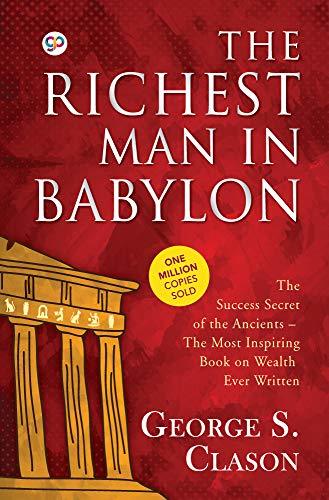TL;DR
The Richest Man in Babylon offers timeless financial wisdom through engaging parables, providing practical advice for managing money, saving, and investing based on the experiences of Arkad, the wealthiest man in ancient Babylon.
What is The Richest Man in Babylon about
Written by George S. Clason, The Richest Man in Babylon is a classic text that delivers financial advice through a series of parables set in ancient Babylon. The narrative follows Arkad, a former poor scribe who shares his journey to wealth and prosperity, providing insights and strategies for financial success. Clason's work emphasizes the importance of saving, wise spending, and making money work for oneself. Modern interpretations by Karen McCreadie further illustrate the relevance of these lessons today, incorporating contemporary case studies that resonate with current readers.
The Richest Man in Babylon 7 Key Takeaways
Start thy purse to fattening.
This principle emphasizes the importance of saving a portion of one's income before any spending, which lays the foundation for future wealth.
Control thy expenditures.
Clason advocates for budgeting and living within one's means to prevent unnecessary debt and ensure that savings grow.
Make thy gold multiply.
Investing wisely is crucial; money should work for you by generating returns through prudent investments.
Guard thy treasures from loss.
This principle encourages caution in investments, advising individuals to avoid schemes that appear too good to be true.
Make of thy dwelling a profitable investment.
Owning a home is presented as a critical step towards financial security and wealth accumulation.
Ensure a future income.
Planning for retirement and ensuring that there is a continuous income stream is vital for long-term financial health.
Increase thy ability to earn.
Continual learning and skill enhancement are encouraged, as they lead to better job prospects and increased income potential.
Top The Richest Man in Babylon Quotes
- A part of all you earn is yours to keep.
- Wealth, like a tree, grows from a tiny seed.
- Opportunities are usually disguised as hard work.
Who should read The Richest Man in Babylon?
This book is ideal for anyone seeking financial independence and stability, from young adults just starting their financial journey to seasoned professionals looking to refine their money management skills. Its practical lessons can inspire readers to take control of their finances and develop a wealth-building mindset.
The Richest Man in Babylon Best Reviews
- The Richest Man in Babylon is a must-read for anyone looking to gain financial wisdom. Clason's parables simplify complex financial principles into relatable stories that resonate with readers of all backgrounds. - Financial Times
- Clason's timeless lessons on money management are as relevant today as they were in ancient Babylon, making this book an essential guide for financial literacy. - The Wall Street Journal
People also liked these summaries
The Richest Man in Babylon FAQs
Is The Richest Man in Babylon based on true events?
While the book is set in ancient Babylon and features a fictional character named Arkad, the principles and lessons presented are based on timeless financial wisdom rather than true historical events.
What are the main lessons from The Richest Man in Babylon?
The book outlines seven key lessons, focusing on saving, controlling expenditures, wise investing, and planning for the future, all aimed at achieving financial security and growth.


